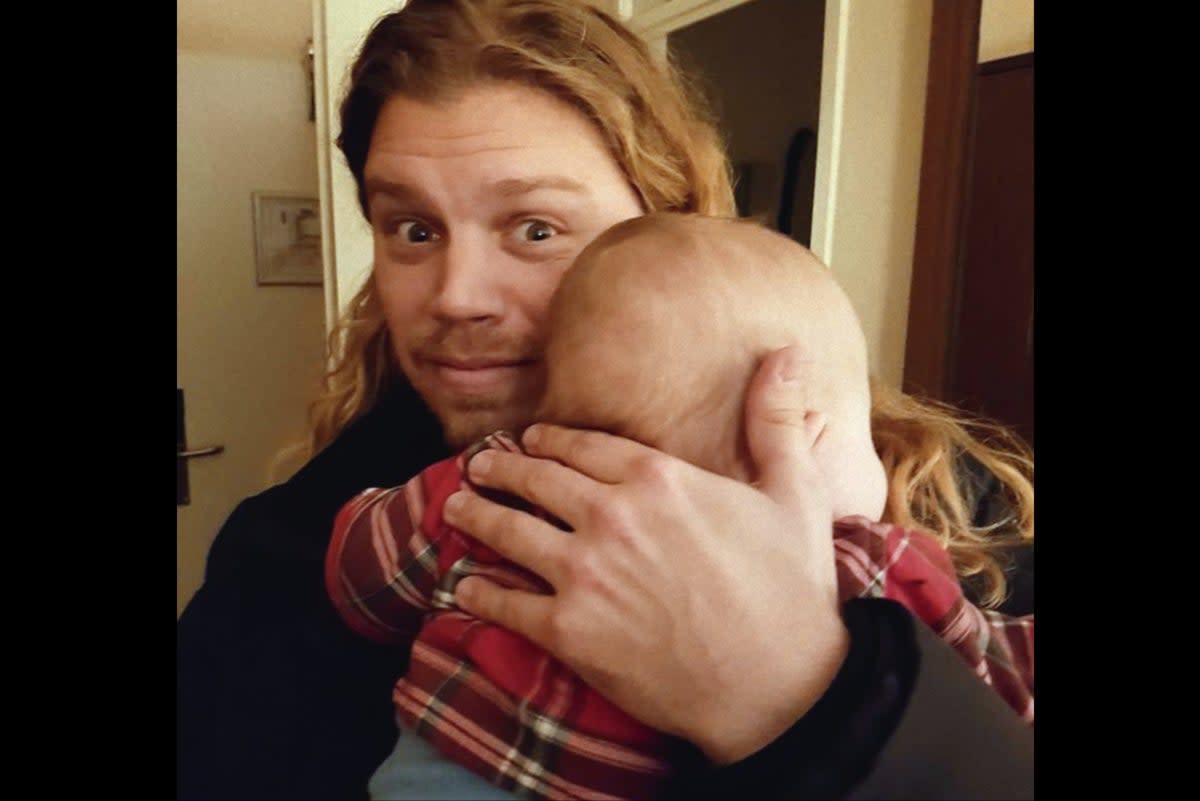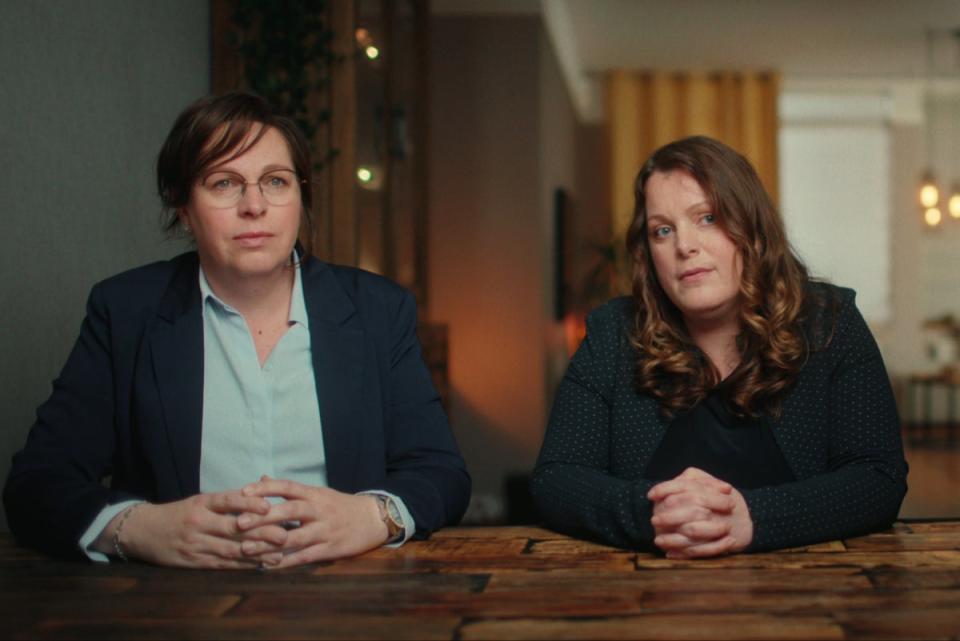The Man with 1000 Kids donor responds to Netflix allegations: ‘I think I got too carried away’

Jonathan Jacob Meijer says he didn’t mean to become The Man with 1000 Kids. For a start, the Dutch sperm donor at the centre of Netflix’s unsettling new three-part docuseries disputes the figure in the title, claiming the real number of donor children he’s helped bring into the world is closer to 600. In the show, the 42-year-old former high school teacher and Crypto trader is portrayed as a zealot determined to spread his seed as far and wide as possible. Mothers from all over the world, who have been having his children since 2007, speak out against him. “I never had the idea to have 100 children or 500 children,” he tells me, speaking down the line from the Netherlands. “It happened step by step. Many donors want to be in the news, but for me if nobody knew about me that would be absolutely fine. Now they do know about me, so I want to explain my side of the story.”
Meijer’s journey to become one of the world’s most prolific sperm donors began when he was at college, where he got talking to a friend who was unable to have children of his own. “He was the first person to put the idea of sperm donation in my mind,” recalls Meijer. A period of introspection followed, as he weighed up how becoming a donor could change his life. A year later in 2007, aged 25, he signed up at a sperm bank. “At first it was really great,” he remembers. “I knew that the people who got my sample would be super happy, and they’d create a family. That’s something meaningful and real.” As he became more at ease with the idea of being a donor, he began to see it as a shame that he had to remain anonymous. “I thought it was a pity I couldn’t meet people and see the smiles on their faces,” he says. “Then I read about websites where you could donate privately, and I realised it was something I wanted to do as well. It felt more complete to me.”
He posted adverts with photographs showing off his long, blonde hair, on Dutch websites where women sought out sperm donors, explaining who he was and his motivations. Right from the start, he says the response was overwhelming. “From the moment I put up the advertisement, an hour later there were four or five emails already. That would go on the whole day,” he explains. “People think I had this plan from the start, but I thought I’d maybe help one or two people.” Instead, he says he found himself filtering through masses of responses. “I know people think I’m crazy and that I help too much, but in my opinion I was super selective,” he says. “People really don’t understand the shortage of donors.”
Soon he was paying private visits to women all over the country, then the world. Many were in lesbian relationships, or single, or in a relationship with an infertile partner. Typically he would provide sperm donations in a plastic cup, although sometimes he had sex with the women himself. He didn’t ask for payment beyond asking that his travel expenses be covered, and after he stopped donating at clinics he would also ask recipients to cover the cost of his STD tests.
He acknowledges that it didn’t take long before he was hooked on the feeling helping create families gave him. “Sometimes I would think: ‘It’s a lot [of children], maybe you should stop’ but then I’d get a new message saying: ‘Wow, you are really the donor we’ve been looking for,’” he says. “I found it hard to say no. You’re the guy that comes along with the winning lottery ticket, that’s the feeling you bring these people. It’s something magical.”
Meijer may have started with the best of intentions, but as the number of his donations ballooned he began lying to potential new recipients about the full extent of his offspring. Natalie, a lesbian mother who has a donor son with Meijer, told The Independent that he informed her in 2010 that “he wanted to help five families, and that I would be number three”. She later learned the true figure was much higher, and similar stories are told by several other mothers in The Man with 1000 Kids.
When I press him about misleading these women, Meijer grows evasive. “Sometimes I think I got too carried away,” he says. “I should have told myself that [a smaller number of children] is fine. It would be best if I had been open, but I chose to follow the international guidelines.” He argues unconvincingly that his actions were no worse than the rules in place at commercial donor operations. “At the big sperm banks like Cryos, their guideline is not to inform the recipient about the amount of times one donor has been used,” he says. “I decided for myself that if the clinics are not informing the parents then I wouldn’t either, but I understand why people feel like it wasn’t the best approach.”

Meijer’s deceptiveness could be seriously dangerous due to the risks of psychological distress, incest or inbreeding between half-siblings who have no idea they’re related. In 2017, these fears led the Dutch Society of Obstetrics and Gynaecology to blacklist him as a donor after learning he had fathered at least 102 children via multiple Dutch clinics. That was in breach of guidelines in the Netherlands stipulating that sperm donors should not father more than 25 children. Other countries have their own rules: the UK cap is 10 families (of unlimited children), while in Germany the limit is 15 children. There is little overarching international regulation.
Meijer says he accepts that inbreeding is a concern, but believes his critics are “over-exaggerating” the likelihood. “It comes down to if [my donor children] would run into somebody that they don’t know, and they can always ask,” he says. “All the children know that they’re from a donor and they know my name. It’s a little thing that they have to be aware of. ‘Are you from a donor, and is your donor Jonathan?’”
He says he stopped donating sperm to new recipients, of his own volition, in 2019. He came to the decision, in part, because he wants to focus on having children of his own. Four years later, a Dutch court ordered him to stop donating sperm, destroy any held by clinics and imposed a €100,000 fine for any future infraction, although it makes allowance for mothers who want biological siblings for their donor kids. “I respect the verdict,” says Meijer.
I will definitely sue the hell out of the whole Netflix crew
Meijer says he declined to participate in The Man with 1000 Kids because it’s not in the best interest of the donor children. “I think it’s really capitalising on these families, who were infertile or just wanted to have families,” he says. “They’re good people, lovely people, and now people will ask them: ‘Oh, is your child one from the 1,000 donor doc?’ Is the doc going to do any good for the children?”
He hasn’t yet seen the series, and denies several of the major accusations levelled against him when I put them to him. He says he never competed with fellow donors over who could get the most people pregnant, claiming he had never even shared the number of children he has with anyone. He outright denies perhaps the most shocking accusation in the series, that he and another donor named Leon mixed their sperm together before giving it to a recipient in order to see whose would “win”. “Is that in the documentary?” he asks incredulously. “No, that’s total slander. It’s insane. Why would I do that? Why should anyone do that? If it’s in the documentary, be prepared, I will definitely sue the hell out of the whole Netflix crew.”
He also denies donating to a sperm bank in Kenya, or posting on donor groups as the Lion of Mombasa. “I don’t have contact with these guys,” he says. “I don’t want anything to do with these idiots.” When I ask him about the donor named Anthony who wrote that he wanted to donate sperm in Kenya in order to “bleach Africa”, he’s outraged. “That’s just disgusting,” says Meijer. “I distance myself a million miles from this guy. He’s horrible. I’ve heard that these right-wing guys want to spread the white gene or something, all this crap.”
![Jonathan Jacob Meijer: ‘I assume [my family] think: ‘Okay, you could have stopped way earlier!’' (Jonathan Jacob Meijer)](https://s.yimg.com/ny/api/res/1.2/om69FI48cjvU5gxsUWULEg--/YXBwaWQ9aGlnaGxhbmRlcjt3PTk2MDtoPTY0MA--/https://media.zenfs.com/en/the_independent_577/8af7d426ea02bbb094a0e6d05c8c40d9)
Meijer maintains that his motivations couldn’t be further from that. “People can think about me what they want, and maybe I didn’t do everything perfect. I agree, I could have been better, but there’s also a reality to consider,” he says. “If you look at Cryos, there’s only 200 active donors for the whole world. The demand is only increasing. They should make it easier for a man to become a donor, instead of saying you need to be ashamed.”
Until there are more male donors to go around, it’s almost inevitable that demand will drive ever larger biological families. “People say that I have a lot [of children], and I say: ‘But look around. Would your brother be a donor, or your husband?’ They say no, of course he would not! Well that’s why donors help so much.”
Meijer knows what it’s like to grow up in a big family, at least by conventional standards. He is one of eight siblings, so I can’t help but wonder how they and his parents all felt when they heard about their massively overgrown family tree. I hear Meijer inhale sharply. “That’s a difficult question!” He says. “I think some find it very difficult. Others think: ‘OK, you did something great.’ I have to say, this was the hardest thing for me to decide. They also become sort of grandfathers, grandmothers, uncles, aunties. I also changed their lives.” Did they struggle to get their heads around the numbers? “Yeah,” he says. “I assume they also think: ‘OK, you could have stopped way earlier!’”
Today, Meijer’s eldest donor children are 17 years old, finishing high school and going off to university. His youngest are barely out of nappies. “It was good that I stopped in 2019, definitely,” he says. “It was, in my opinion, a bit late, but it was hard to stop.”
He knows that he’s been portrayed as a man addicted to having children, but he insists that’s not true. “I don’t think addiction is a good word for it, but if I was addicted to anything it was to being valuable to people and having a great time with them,” he says. “Now, looking back, I can say that I should have set more boundaries for myself, and realised when I was reaching my limits. I shouldn’t have waited until people started to scream and shout at me.”
‘The Man with 1000 Kids’ is available to stream on Netflix

 Yahoo News
Yahoo News 
